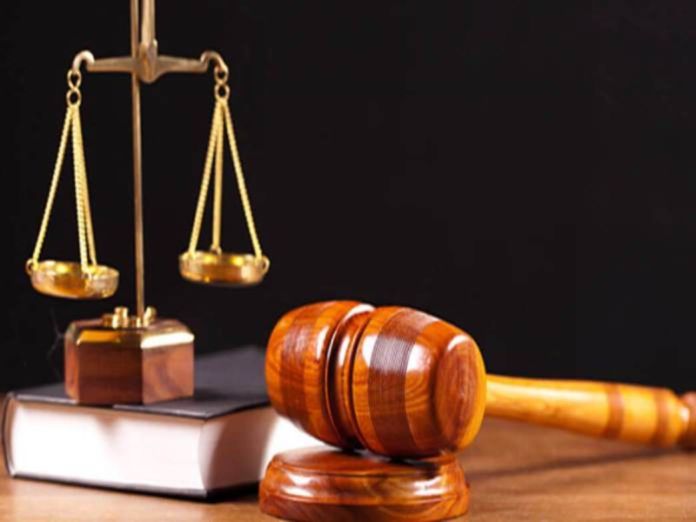By Yankuba Jallow
Accessing court files in The Gambia is one of the problems that the judiciary is faced with.
In what everyone will refer to as the 21st century with improved services and procedure, the Gambia’s judicial system is left behind in terms of recording system.
The court recording system in The Gambia is such that the magistrate or judge will record verbatim what is being said or what happens in the court and at the end of the case, the secretaries will type the whole record and send it back to the magistrate or judge for vetting who after confirming appends his or her signature. This process takes a long time considering the deadline for appeal.
As a result of this old-fashioned system in the country, many appellants file notice of appeal and wait for the record of proceedings and the judgment in their case to be transferred to the appellate court. The waiting period often takes over half a year or more. What makes the trouble more complex is when the case is handled by different adjudicators (magistrates). Some litigants complain of missing court files particularly at the instance of the district tribunals.
It usually takes longer than expected for successful litigants to access their records from the courts to either execute the judgment or appeal against the decision of the courts.
Even with the constitutional provision for a fair trial within a reasonable time, litigants are faced with the trouble of accessing court files.
The December 1, 2016 election ushered in a purported new Gambia with the idea of reforms that would result to an improvement in access to the courts.
The Gambian legal framework is such that an aggrieved person or party in a case, whether civil or criminal, can appeal against the decisions of courts to higher courts. It is a practice in appealing against court decisions for the appellants to attach copies of the previous case’s record of proceedings of the case. There are lots of appeal cases that couldn’t start owing to the fact that the records of proceedings are not prepared.
The trouble is across all courts in The Gambia particularly the lower courts. Appeal in the Gambia is time bound and therefore any delay is usually at the detriment of the appellant.
Alagie Musa Ceesay, a litigant in a land case said he cannot receive the court’s record of proceeding for over a year and half.
“I have been coming here for over a year but I am yet to receive the records of proceedings. This is really frustrating because I don’t have a lawyer to facilitate the process for me,” he said.
Ceesay said his case lasted for about 4 years.
“I am struggling because my case has been handled by 3 different magistrates. The clerk now was not the one there and we are struggling because some of the documents are missing,” he said.
Bubacar Jabbie said the system discourages people to appeal.
“People cannot be coming every day or week for the court records. It is very frustrating. There is need for improvement,” he said.
Jabbie said a judicial system should be constituted in a way that will encourage people to seek justice and not otherwise.
Some lawyers told Foroyaa the process to get records from the courts is not easy. The lawyers, who preferred to be anonymous, said without the proper records of proceedings, cases at the high court cannot proceed and this delay their matters.
The appeal cases of 7 dismissed soldiers who were convicted of treason and other offences as well as the NIA case involving Yankuba Badjie and others is stuck at the Gambia Court of Appeal as a result of records of proceedings. The military men (Captain Yaya Jammeh and others) were convicted to 9 years imprisonment by a general court-martial on 9 criminal counts including treason. They were convicted on the 27th May 2019 and their record of proceedings is yet to be transferred to the court. They have filed their notice of appeal before the court of appeal, but the case is yet to commence owing to the unavailability of the record of proceedings. The convicts were arrested in July 2017 in relation to a WhatsApp group created to commit treason by arresting cabinet ministers, Chairman IEC, the Chief of Defense Staff and battalion commanders as well as to attack ECOMIG.
Also the NIA 9 case is another case that is hampered as a result of poor recording system. The case is stayed at the high court as they await the decision of the court of appeal. The case is yet to start at the appellate level because the records are not yet ready. The case began in 2017 and the prosecution has called over 30 witnesses. The case is at defence stage which brought about intense argument between the defence and the prosecution because the former want to call the witnesses that the latter left out to testify in the case, but the court rejected the application. Aggrieved with the decision, the defense appealed at the court of appeal against the ruling of the high court.
Landing Sanneh, the Judicial Secretary of The Gambia said he hasn’t received such complaints from litigants. He said the lower courts have a lot of cases with limited secretaries (typists). He added that the demand for court records is high and the number of typists is small compared to the demand. He said after typing, the records are sent to the magistrates for vetting and it is usually sent to the high court. He said he knows that at the high court appeal cases cannot start without the record of proceedings from the lower courts.
“We don’t have the manpower because we don’t have enough secretaries. We hope the situation improves this year,” Sanneh said.


















